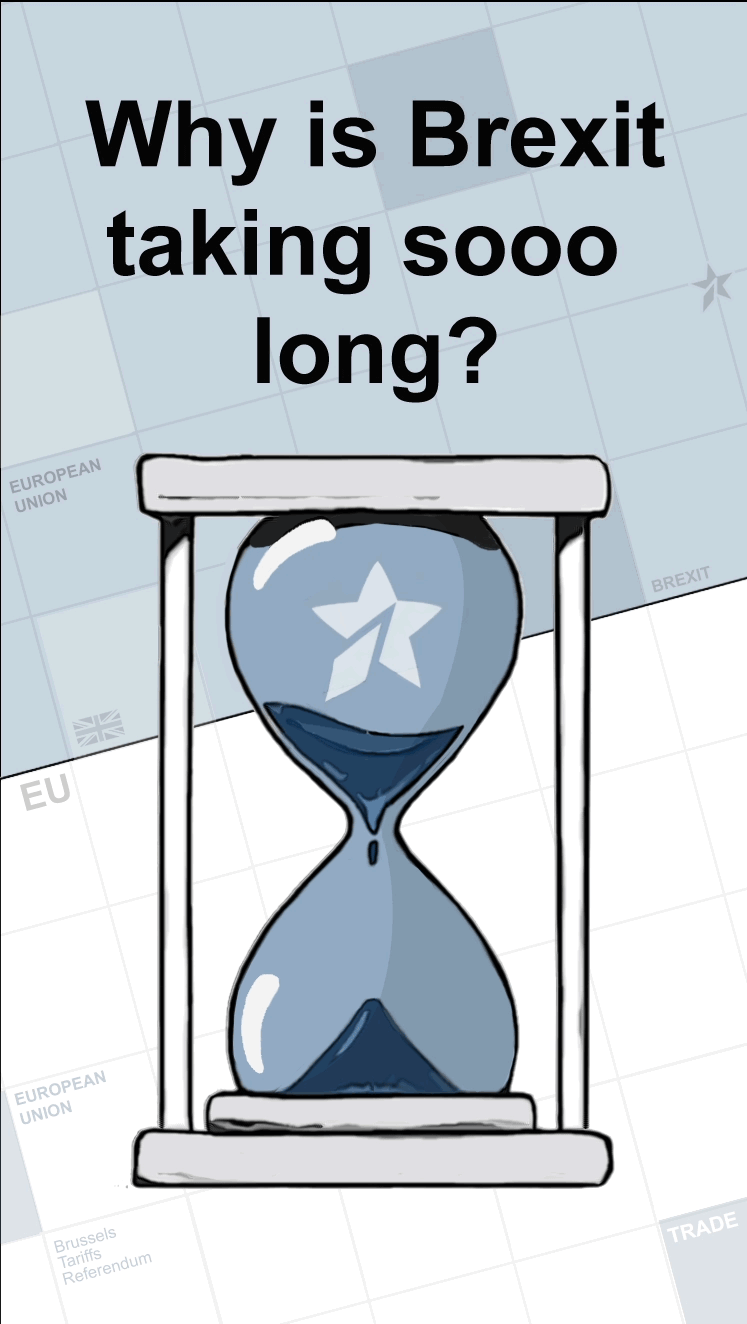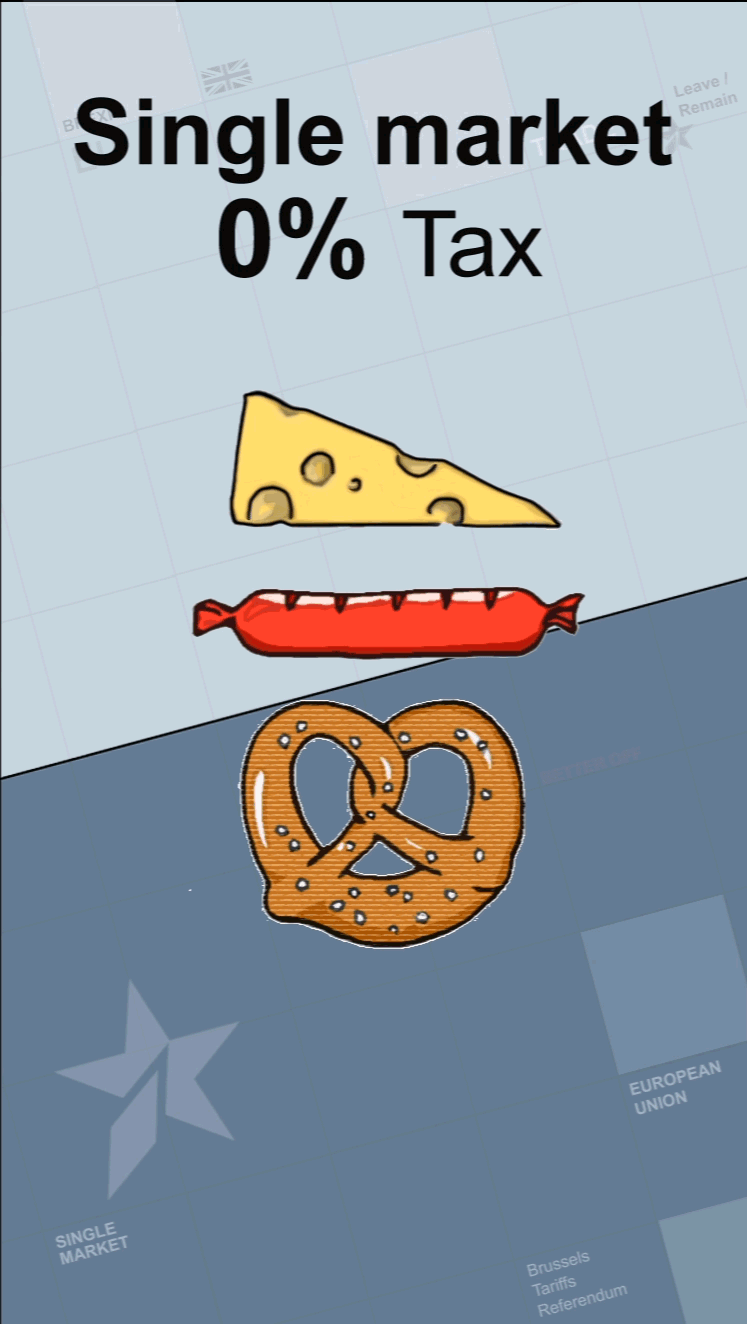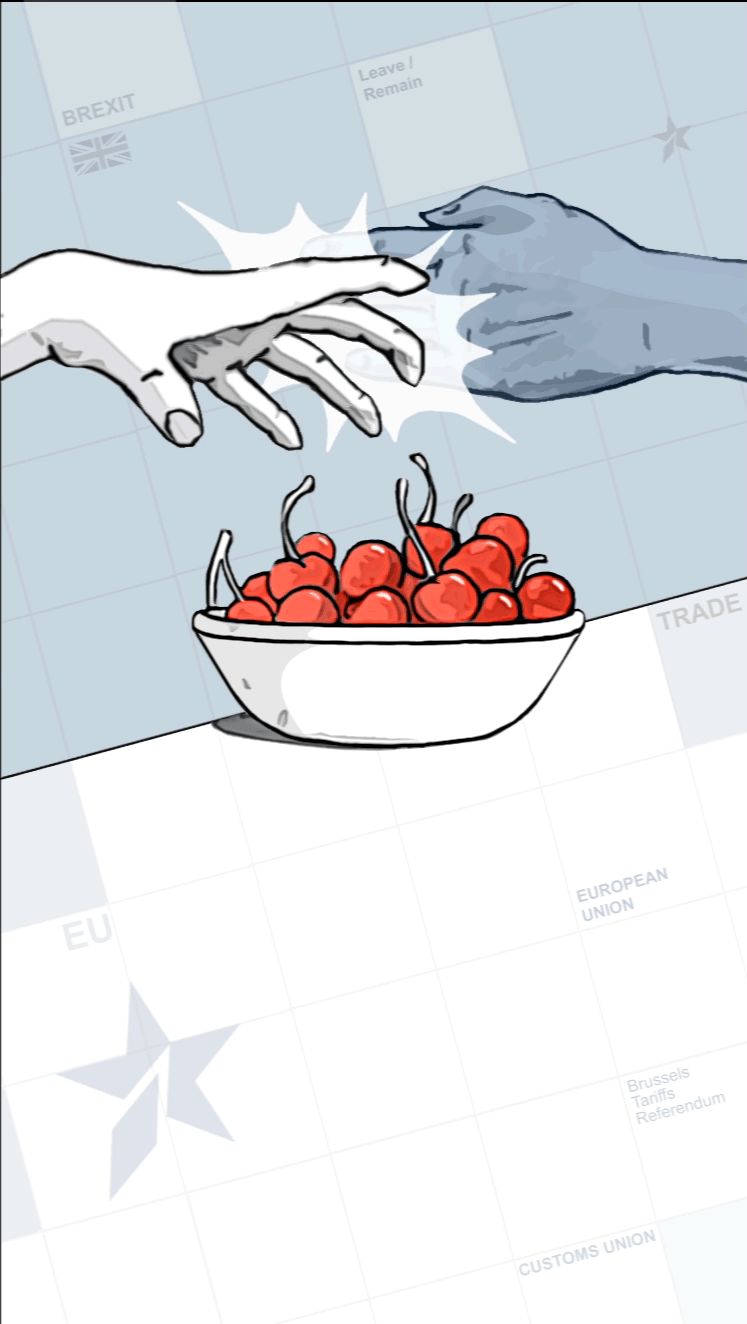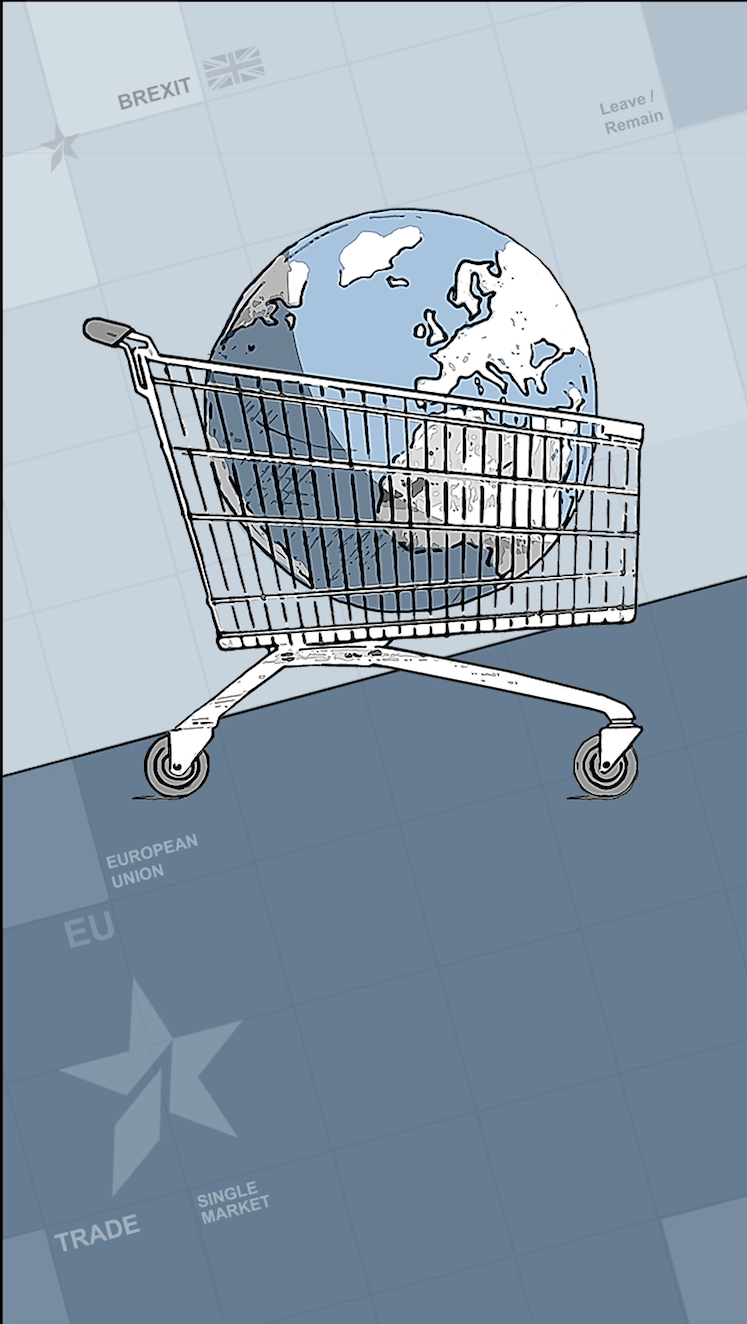Brexiteers discuss Theresa May leadership challenge
- Published
- comments
Michael Gove tells Today challenging Theresa May's leadership is 'loose talk'
Conservative MPs opposed to Theresa May's Brexit plan have met to discuss how and when they could force her to stand down as prime minister.
About 50 members of the European Research Group (ERG) openly discussed "how best you game the leadership election rules," a source said.
Eurosceptic MPs are to unveil what they say is a solution to the Irish border.
Environment Secretary Michael Gove said leadership speculation was "loose talk" and urged MPs to unite behind the PM.
Mr Gove said he wanted Mrs May to stay in Downing Street "as long as possible" and believed her much-criticised Chequers blueprint for future relations with the EU could win the support of Parliament.
Leadership speculation was "like the weather...feature of British life", he told BBC Radio 4's Today.
"This is loose talk. There is always loose talk. The critical thing is we deliver on the Brexit mandate and any diversion or distraction from that commitment means our ability to ensure that it delivered is undermined."
The BBC's assistant political editor Norman Smith said the significance of the ideas discussed at the ERG meeting would have to be considered as leading Tory Brexiteers - Jacob Rees-Mogg, Owen Paterson, Iain Duncan Smith, Bernard Jenkin, David Davis, Boris Johnson - were not present.
Mrs May says she wants to strike a trade deal with the EU for after the UK leaves in 2019. She also says there needs to be "friction-free movement of goods" with no customs or regulatory checks between the UK and EU on the island of Ireland, in order to avoid a hard border there.
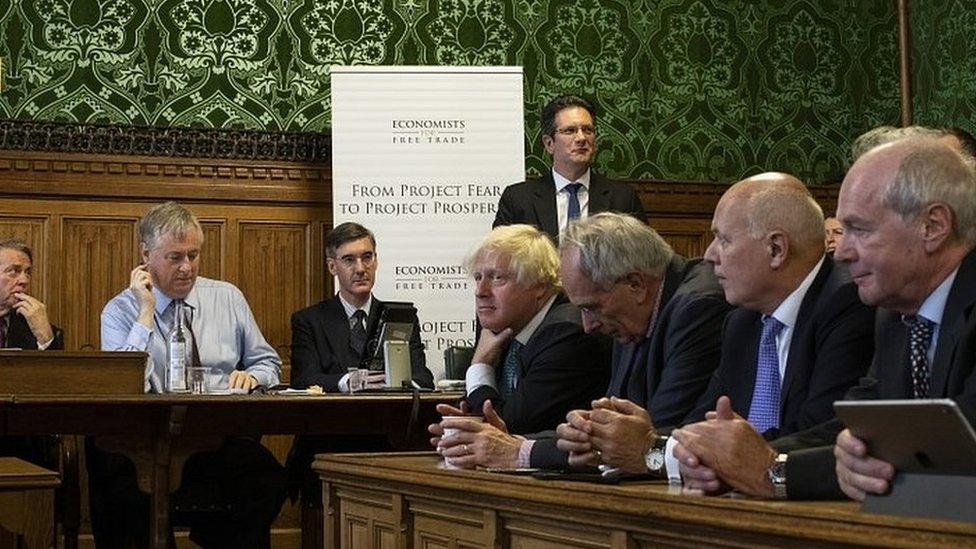
Boris Johnson was among leading Tory MPs at an event discussing a "clean break" from the EU earlier on Tuesday
The ERG strongly opposes these proposals, which form part of what has become known as the Chequers plan. One MP present at the meeting on Tuesday evening said the group considered "possible scenarios over the Autumn" depending on the deal the prime minister did or didn't get with the EU, BBC political correspondent Jonathan Blake said.
Comments at Tuesday evening's meeting were said to include "everyone I know says she has to go", "she's a disaster" and "this can't go on".
If you can't see the explainer, follow this link, external
One source said "people feel the leadership is out of touch and has lost the plot", but another said changing the leader "is a stupid idea now".
A number told the meeting in Westminster that they had already submitted letters of no confidence in Mrs May. However, it is understood they are not planning an immediate move against her.
A Conservative leadership contest can be triggered either if the leader resigns or if 15% of Tory MPs (currently 48) write to the chairman of the backbench 1922 Committee, demanding a vote of no confidence.

Are Tory MPs ready to move against May?
By the BBC's political editor Laura Kuenssberg
There is massive frustration with her leadership, her position on Chequers and the way her proposals tuck the UK closely into the EU in perpetuity. And yes, there are some MPs who want to see her gone immediately.
However senior voices in the European Research Group are adamant that it is not the time to try to oust the PM. It would be "stupid", one told me last night.
Imagine in these critical weeks of the Brexit negotiations if the UK started to try to change the prime minister.
Right now those jostling to remove her know they don't have any guarantees they would have the numbers to force her out, even though they may well be able to pull together enough MPs to submit letters to the chair of 1922 committee to trigger a contest.

Alternative plans for the border are due to be unveiled at an event in London which will be attended by former Northern Ireland Secretaries Owen Paterson and Theresa Villiers, the former Brexit Secretary David Davis and former Northern Ireland First Minister Lord Trimble.
Conservative MP Jacob Rees-Mogg, who chairs the ERG, said the group would offer a solution "that any reasonable person would accept".
IDS: ‘I’d stamp on any coup against PM’
With the UK due to leave the EU on 29 March 2019, the challenge has been to avoid a so-called hard border between Northern Ireland and the Republic of Ireland - which is an EU member.
Both sides are keen to avoid the imposition of barriers and checkpoints amid warnings of damage to cross-border trade and disruption to the Good Friday Agreement, which was signed in April 1998 and helped bring an end to 30 years of sectarian conflict, known as the Troubles.
The government says its plan for "harmonisation" with EU trade rules and a "combined customs territory" with the EU will avoid friction at the border.
If you can't see the timeline, follow this link, external
It says Parliament will be able to choose to diverge from the EU rules at a later date, "recognising that this would have consequences".
But critics say this would get in the way of the UK trading freely with countries outside the EU.
The government's Chequers plan has not yet been accepted by the EU. Both sides have also agreed on the need for a "backstop" agreement to avoid new physical infrastructure on the border, irrespective of the final deal that is negotiated.
Some Brexiteers have claimed the border issue is being "exploited" by the EU and Remain supporters to keep the UK closely tied to Brussels.
Speaking at the launch of the "clean-break" proposals, attended by Tory Brexiteers on Tuesday, Mr Rees-Mogg said the border was the only thing standing in the way of the UK negotiating a free trade deal like the EU has with Canada.
He added: "It is possible to move very swiftly to a Canada-plus style deal as long as we can come up with a scheme, which I think we have got for tomorrow, on how do you ensure a solution to the Northern Ireland problem that any reasonable person would accept?"

